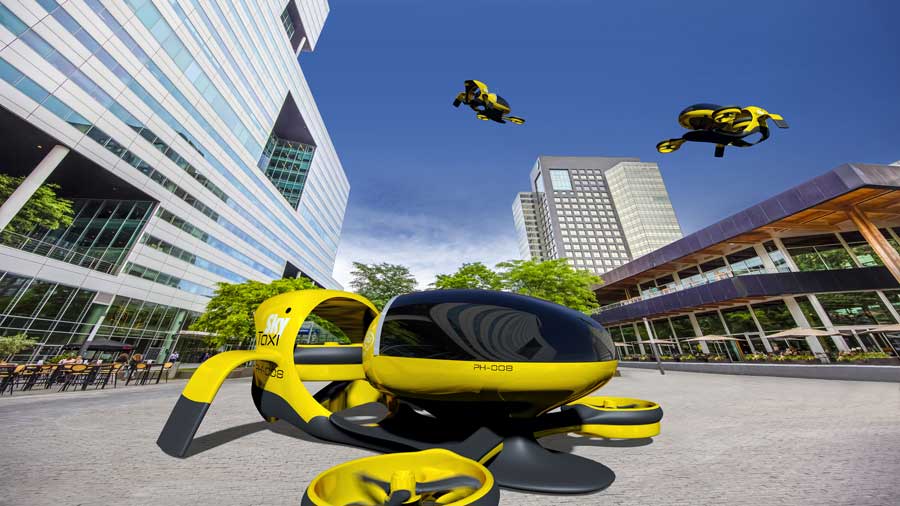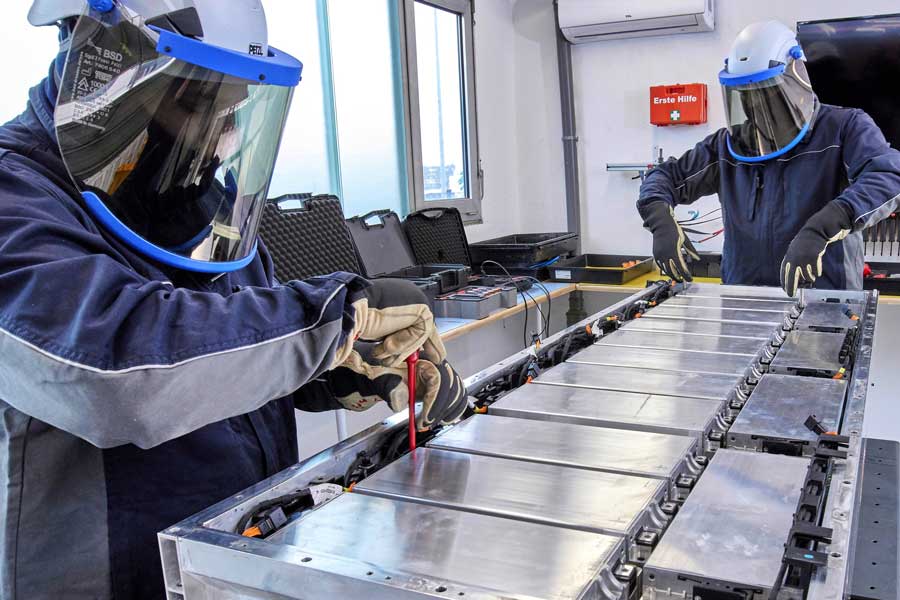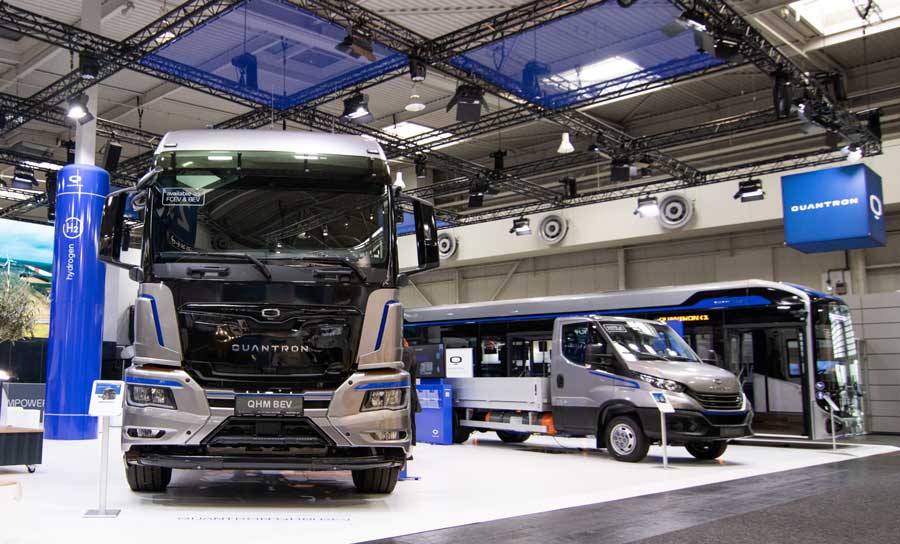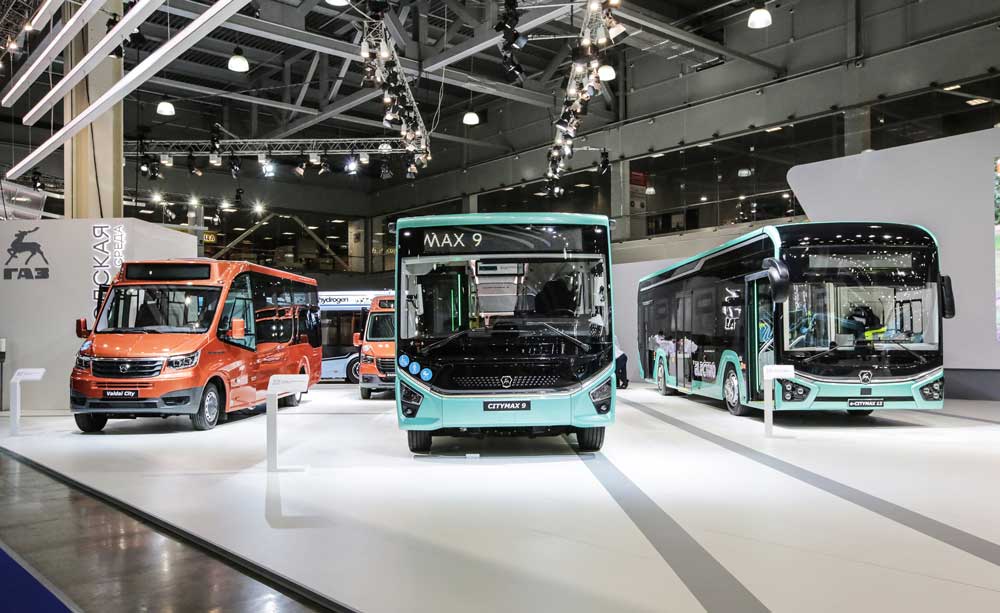Focused on the immediate development of solutions that allow the mobility of people while at the same time preserving the health and safety of public transport users, and that promote the resumption of this important segment, strongly impacted by the Covid-19 pandemic, Marcopolo, in partnership with Valeo Thermal Bus Systems, developed an air conditioning system with ultraviolet light for buses that has antimicrobial action, assisting in the disinfection and in the quality of the air that circulates in the brand’s vehicles.
Marcopolo BioSafe‘s new solution has an ultraviolet light device integrated into the equipment’s conventional air circulation system, which can promote biosafety in public transport, considering the Covid-19 pandemic. The UV-C radiation emitted, due to its potency and antimicrobial action, promotes disinfection of the air and surfaces of the device, effective in inactivating the genetic material of viruses and sporulated bacterial cells, which have greater innate resistance in relation to various enveloped viral infectious agents, some more resistant than the Novel Coronavirus. A test carried out by the Clinical Microbiology Laboratory at Universidade de Caxias do Sul, which also had collaboration from UFSM – Universidade Federal de Santa Maria in the lamp power measuring activities, assessed the antimicrobial efficacy of the ultraviolet radiation installed in the air conditioning of the bus. According to the result, the efficiency rate reached over 99%. (Report available at: https://bit.ly/MarcopoloLaudoUVC).

According to Luciano Resner, Marcopolo’s engineering director, UV-C radiation generated by lamps and enhanced by the airflow from the air conditioner, disinfects the air and surfaces. “Even considering the low penetrating power of UV-C light, its action is used to destroy microorganisms suspended in the air and inactivate part of them on surfaces and objects. Sustaining the effectiveness of radiation is also directly linked to environmental conditions, the degree of dirt, organic and inorganic matter, and the sanitization of the inside of the bus”, he explains, adding that passengers are not directly exposed to the light. The executive also states that with the combination of the air renewal rate of the air conditioning equipment, plus the use of UV-C radiation in the system and adoption of all the cleaning precautions, the probability of the virus circulating the bus is practically zero.
The new air conditioning system with UV-C light, whose lamps have a life span of approximately 8,000 hours, will be sold as an option with installation instructions on the air conditioning module. The equipment will be available to customers in the Brazilian and international markets, both for new buses and for vehicles in operation, with availability consultation for each specific model.

Clean and safe environment
“It is important to note that a preliminary analysis of the microbiological quality of the air inside the bus with the air conditioning on showed optimal air conditions (a value between 15 UFC in the back, and 164UFC/45 minutes in the part near the entrance). This result, if identified in a critical environment, such as health services, would be comparable to the limits classified as excellent for wards (0 to 450 UFC/dm2/h)”, highlights Resner. Values well below the limits stipulated for Brazil by ANVISA – Agência Nacional de Vigilância Sanitária, which determines that the reference standard for indoor air quality in air-conditioned environments for public and collective use, may not exceed the maximum value of 750 UFC/m³ (colony forming units per cubic meter) of fungi for microbiological contamination.
As a reference, for environments considered special or critical, such as health services, maximum UFC (colony forming units) limits were standardized by passive and non-active sampling. These limits have been classified as optimal, acceptable and unacceptable according to the table below.
| Optimal
(UFC/dm2/h) |
Acceptable
(UFC/dm2/h) |
Unacceptable
(UFC/dm2/h) |
|
| Wards | 0 to 450 | 451 to 750 | Above 750 |
| Pharmacies | 0 to 100 | 101 to 180 | Above 180 |
| Aseptic rooms | 0 to 50 | 51 to 90 | Above 90 |
| Operating rooms in standby | 0 to 4 | 5 to 8 | Above 8 |
| Operating rooms in use | 0 to 60 | 61 to 90 | Above 90 |










